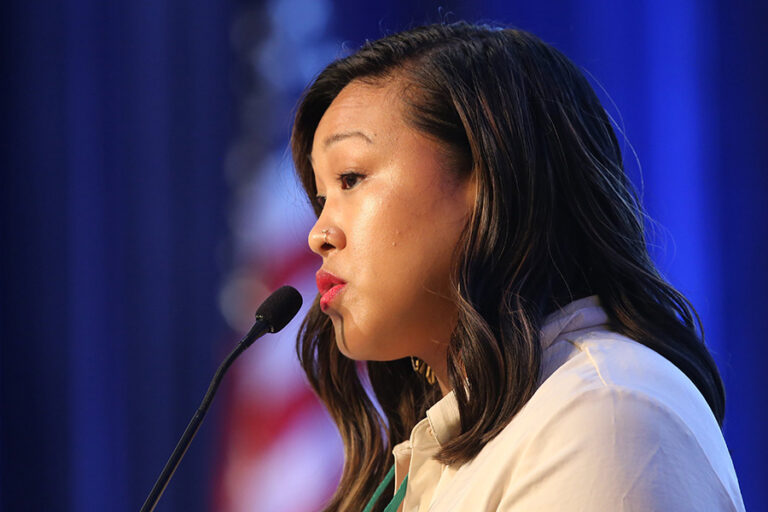In the church today, young adults Catholics are often given a bad rap. Data have shown that our age group is disassociating from the Catholic Church in droves, and we are sometimes perceived generationally as being non-committal, for having short attention spans and not valuing traditions. There is a bit of truth in some of that, but those sentiments fail to acknowledge that there are many young adults actively engaged in the church, who desire to be a part of it and are committed to their Catholic identity — even when we feel like our pleas for inclusivity within the institutional church are misconstrued as mere grievance rather than sincere zeal mixed with a need to be seen, heard and truly known.
In the last several years, Catholics throughout the country have participated in numerous gatherings inviting the faithful to share insights on the current landscape of different segments of the U.S. church, and to recommend pathways toward improving ministries and outreach. We have had the Convocation of Catholic Leaders, the V National Encuentro of Hispanic/Latino Ministry, the National Dialogue, the Synod on Synodality and Journeying Together — all of which collectively included numerous younger Catholic participants from throughout the country. I have personally participated in all these enterprises, and at times felt great hope through having the opportunity to share my thoughts and experiences as a young adult Catholic, to hear the stories of others, and to discuss strategies for helping to bring the church to life for the generations that will inherit it.
In 2023, the National Eucharistic Revival will take center stage. From playbooks, to events, to billboards, there is a palpable energy from both clergy and the lay faithful who are excited about what this revival may ignite within the church. Despite my own deep personal connection to and love of the Eucharist, I would like to explain why I am still hesitant to embrace it, and why I would describe my posture as one of cautious optimism at best, and wary apathy at worst.
As the National Eucharistic Revival gains momentum, I worry that this initiative will become just one more item on the list of projects meant to foster energy and catalyze small but vital changes in the U.S. church, which never develop into coherent practices benefiting (or even touching) the larger church. The gatherings I previously mentioned all delivered myriad reports and recommendations for courses of action, but with seemingly little corresponding impact on the church. It makes it hard, sometimes, to feel that our concerns are really being heard.
Truly, I believe we young adults who have participated with great hope in these assemblies and convocations are experiencing a bit of emotional fatigue. We have been asked repeatedly to share our hopes and dreams, our difficult experiences and frustrations with the church — which carry a significant emotional weight. I have heard countless young adults tell personal stories of marginalization, of racism, and of not feeling seen, heard, or taken seriously as participants and evangelists within the faith. We’ve shared our dreams of a church that is willing to address its painful history — one that works to bring about healing proactively, instead of waiting until it must; that celebrates cultural diversity where possible in the liturgy, and throughout the church as well, and loudly stands up for the oppressed.
There is profound depth in what we have shared over the past few years, and yet somehow the church has reduced our sacred stories and trusted conversations to jargon-loaded documents, lengthy bureaucratic reports and bullet-point lists of recommendations, all seemingly filed and then forgotten as people hastily move on to the next initiative, program or event. Sometimes it feels like the church in the U.S. suffers from the very short attention span that we young adults are accused of having.
My prayer for 2023 is that instead of scheduling more all-talk-little-action events or expending energy discussing strategies at risk of seeming stale before they’re ever tried, the church would draw from the knowledge shared throughout these past get-togethers and that she would make some room — create an intentional space for the younger church. Let us help to mold and form how the National Eucharistic Revival takes shape and help establish how we “do” church, together. Young Catholics carry on their shoulders the weight of the missteps and sins of past church leaders. We also will bear the church in the future. This is an opportune time to give those of us who are committed to our relationship with Christ, and with the church, real opportunities to help renew and rebuild the church we dream of.
Cecilia Flores is a first generation Filipina-American, mother and community organizer living in Sacramento, California. “20/30 Vision” features a new young adult Catholic voice, each month.
Read More Commentary
Copyright © 2023 OSV News








